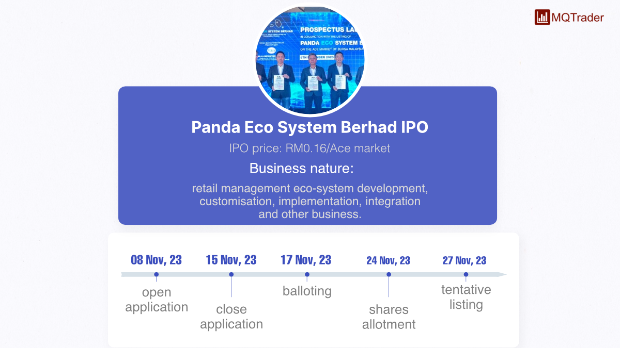RHB Investment Research Reports
Plantation - EUDR Unveiled- Bridging the Regulatory Gap
rhbinvest
Publish date: Tue, 21 Nov 2023, 10:53 AM
- Tackling the EU Deforestation Regulation (EUDR). With the Dec 2024 deadline looming, all hands need to be on deck to ensure palm oil products continue to be allowed into the EU once the regulation is implemented. As companies try their best to comply, governments need to ensure definitions are aligned and the problem is not relocated. Our BUYs for EUDR readiness: Malaysia – Kuala Lumpur Kepong (KLK) and IOI Corp (IOI); Singapore – Golden Agri (GGR), Wilmar International, Bumitama Agri (BAL).
- The EUDR is not unsurmountable. While there are a myriad of problems and issues in complying with the EUDR guidelines based on current regulations, we believe there are also numerous solutions. The Malaysian and Indonesian Governments working together with the EU to find solutions is a step in the right direction – especially if Malaysia and Indonesia are classified as “Low Risk”. Aligning definitions are key to achieving compliance and ensuring everyone is on the same page.
- The EU needs to help, otherwise this problem will be shifted elsewhere. At the end of the day, if the EU fails to help producing countries like Indonesia and Malaysia in complying with the EUDR, it will push producers to export more of their commodities to countries with weaker environmental regulations, thereby shifting the problem to other regions.
- A short term solution would be to ensure that whatever is sold to the EU is produced in segregated mills and refineries and traceable to plantation. This could mean redirecting smallholder crops that are not traceable to other mills to ensure there is no mixing of crops in each plant.
- Uplifting smallholders means uplifting the sector. As smallholders manage 40% of plantation areas in Indonesia and Malaysia, this sector will only progress if they are taken care of and well updated with the changes in laws and regulations. As discussed previously, the main hurdle of achieving traceability lies with obtaining data from third-party suppliers, including smallholders. In order to address this, continuous engagement with the smallholders is essential to educate them on the importance of establishing a sustainable business, while the necessary tools must be given to the smallholders to help them to achieve these goals.
- We believe the sector in general is moving in the right direction in terms of ESG standards, with more disclosure and targets being set. However, we note that there are some outliers which have yet to make any improvements to ESG disclosures as well as ESG targets.
- We have made several changes to our ESG scores, which have altered the TPs for the stocks under our coverage. However, no changes have been made to our stock recommendations or our earnings estimates.
- Maintain NEUTRAL call with a tactical trading strategy. We believe the bigger and more established players will do better in complying with the EUDR by the deadline, taking advantage of the potential gap filled by the smaller palm oil suppliers. Our BUYs for EUDR readiness are KLK, IOI, GGR, BAL, and Wilmar. The JSX-listed players, while having decent traceability ratings, fall behind in certification rankings.
Source: RHB Securities Research - 21 Nov 2023
Related Stocks
| Chart | Stock Name | Last | Change | Volume |
|---|
Market Buzz
2024-07-22
IOICORP2024-07-22
KLK2024-07-20
KLK2024-07-19
IOICORP2024-07-19
KLK2024-07-18
IOICORP2024-07-18
IOICORP2024-07-18
KLK2024-07-17
IOICORP2024-07-17
IOICORP2024-07-17
KLK2024-07-16
IOICORP2024-07-16
KLK2024-07-16
KLK2024-07-15
IOICORP2024-07-15
KLK2024-07-12
IOICORP2024-07-12
KLK2024-07-12
KLK2024-07-12
KLK2024-07-11
KLK2024-07-10
IOICORP2024-07-09
IOICORP2024-07-09
KLKMore articles on RHB Investment Research Reports
Discussions
Be the first to like this. Showing 0 of 0 comments





















